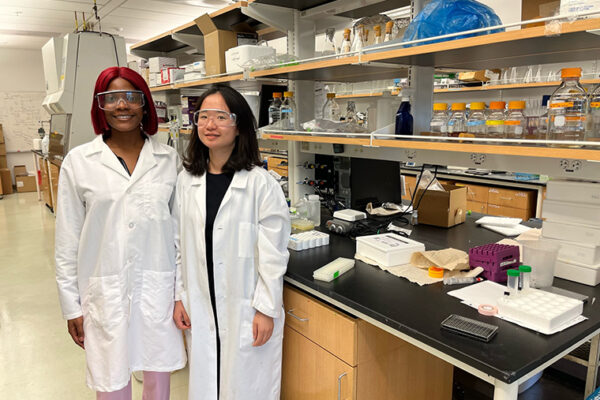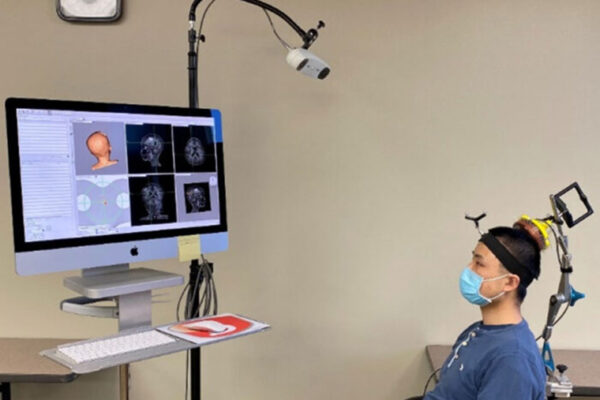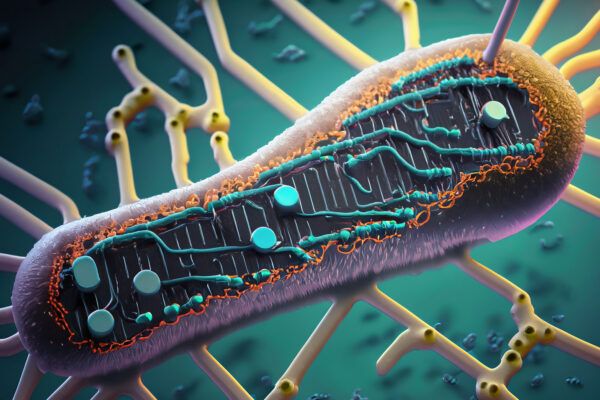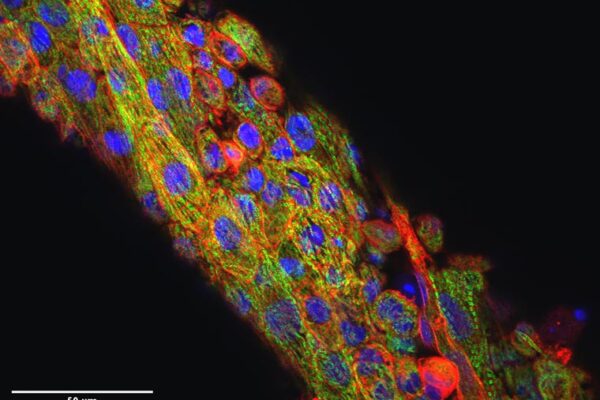WashU students contribute to biomanufacturing in space
WashU engineers visited Kennedy Space Center to report research progress and to understand testing capabilities for alternative feedstocks in biomanufacturing.
Curving light in a record-setting way
A team led by scientists and engineers, including researchers from the McKelvey School of Engineering, has created a unique, record-setting material that can bend one infrared ray of light in two directions.
Noninvasive, ultrasound-based brain biopsy is feasible, safe in people
Researchers at the School of Medicine and the McKelvey School of Engineering have developed a noninvasive technique called sonobiopsy that uses ultrasound and microbubbles to release biomolecules from brain tumors. A blood draw can collect the biomolecules to help inform treatment decisions.
Genin elected to Society of Engineering Science board
Guy Genin, at the McKelvey School of Engineering, has been elected to serve a three-year term on the Society of Engineering Science board of directors. The society strengthens the interface between engineering, science and math.
Unveiling the hidden world of gene regulation
Researchers led by Fuzhong Zhang at the McKelvey School of Engineering developed a synthetic biology tool to comprehensively reveal gene regulatory networks in E. coli.
Academy honors six university faculty
Six Washington University in St. Louis faculty members are being honored by the Academy of Science – St. Louis for their outstanding contributions to the field. They will be recognized at an awards dinner Sept. 20 at the Missouri Botanical Garden.
Boyd receives ASME early career leadership award
Emily Boyd, teaching professor in the Department of Mechanical Engineering & Materials Science at the McKelvey School of Engineering, has been selected to receive the 2023 American Society of Mechanical Engineers Lakshmi Singh Early Career Leadership Award.
$3M grant funds training to harness power of AI for social, environmental challenges
A National Science Foundation research traineeship led by William Yeoh at the McKelvey School of Engineering will prepare investigators at the convergence of computational, environmental and social sciences.
Virtual drug quiets noise in heart tissue images
Research in the labs of Nate Huebsch and Guy Genin at the McKelvey School of Engineering creates software to enable experiments for learning how electrical and mechanical heart functions relate. Their study is published in the Proceedings of the National Academy of Sciences.
World can now breathe easier
Researchers working with Randall Martin at the McKelvey School of Engineering quantified changes in global air pollution from fine particulate matter. They found that global PM2.5 exposure decreased steadily from 2011 to 2019, largely driven by rigorous air quality management in China and slower growth in other regions.
View More Stories









